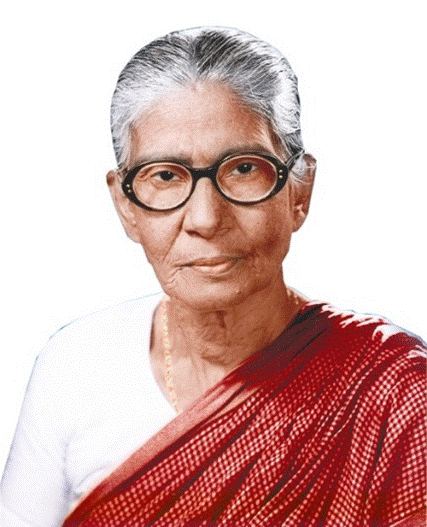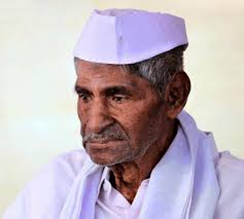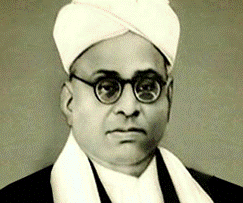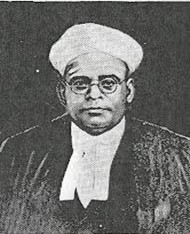PREVIOUS
Freedom Fighters from Tamil Nadu Part - 03
July 21 , 2024
553 days
11253
0
(இதன் தமிழ் வடிவத்திற்கு இங்கே சொடுக்கவும்)
16. Janaki Ammal
Early Life
- Janaki Ammal, the theatre artiste, was born to Padmanabhan and Lakshmi in 1917 in Madurai.
- Janaki joined music classes after she dropped out in the eighth grade.
- She joined Palaniappa Pillai Boys Company as a singer and later became the lead actress.
- She married Gurusamy Naidu, a harmonium player in the troupe.
Political Activism
- She was arrested for the first time in 1930 while performing in Tirunelveli and served in jail for a year.
- She was one of the first women in South India to be arrested by the British.
- Her interest in politics and the freedom movement restricted her acting, and she began to spend time and money on social service.
- She even spent all her earnings from the theatre on the people.
Involvement in Politics
- She joined the Congress in 1936 and became an important speaker of the party.
- Later, inspired by communist philosophy, she joined the Communist Party in 1940.
Legislative Career
- In 1967, Janaki was elected to the State Legislative Assembly from the Madurai East Constituency.
- She led many agitations like the regularisation of wages for mill workers, farmers, and the labour class.
Later Life and Death
- She declined the freedom fighter's pension and the 'tamarai pattayam'.
- Because of repeated jail terms, her health was weakened and she died on March 1, 1992, due to asthma.

17. Mayandi Bharathi
Early Life
- Mayandi Bharathi was born in 1917 in Madurai.
- At the age of 14, he witnessed British police lathi-charging unarmed protestors during a rally against shops selling foreign cloth and liquor in 1932.
- This incident, where he was also beaten by the police, marked a turning point in his life.
Political Activism
- Inspired by the incident, Bharathi became actively involved in rallies promoting swadeshi goods and khadi.
- He opposed the collection of war funds and was arrested multiple times between 1940 and 1946.
- He was influenced by leaders such as Pasumpon Muthuramalinga Thevar, K.P. Janaki Ammal, M.R. Venkataraman, and Sitaramaiah.
- Though a Gandhian, he greatly admired Netaji Subhas Chandra Bose and was part of the welcome committee during Bose's visit to Madurai in 1939.
Journalism and Writing
- Bharathi made significant contributions to literature and journalism.
- He authored numerous books and served as the editor of the CPI journal ‘Janashakti’ from 1944 to 1963.
- He also edited the CPI(M) Tamil daily ‘Theekathir’.

18. S. Srinivasa Iyengar
Early Life
- S. Srinivasa Iyengar was born on 11 September 1874 to Seshadri Iyengar, a prominent landowner in the Ramanathapuram district of the Madras Presidency.
Education and Legal Career
- Iyengar graduated in law and practiced as a lawyer in the Madras High Court.
- He achieved prominence in the legal field, rising to the position of Advocate-General in 1916.
- He also served as a member of the bar council and was nominated as a law member of the Governor's executive council.
Political Activism
- In 1920, in protest against the Jallianwala Bagh massacre, Iyengar resigned from his position as Advocate-General, his seat on the Governor's executive council, and returned his C.I.E.
- He joined the Indian National Congress and participated in the Non-Cooperation Movement.
- In 1923, he and other leaders like Motilal Nehru and Chittaranjan Das broke away from the Congress due to differences with Mahatma Gandhi over participating in elections.
- This faction formed the Swarajya Party.
Leadership Roles
- Iyengar served as President of the Tamil Nadu Congress Committee and later the Madras Province Swarajya Party.
- He was the leader of the Swarajya Party when it chose not to form the government in the province despite winning a majority in the 1926 elections.
- He presided over the 1920 Madras Provincial Conference at Tirunelveli and participated in several Congress sessions, including those held at Ahmedabad (1921), Gaya (1922), Kakinada (1923), Delhi (1923), Belgaum (1924), Kanpur (1925), Guwahati (1926), Madras (1927), Calcutta (1928), and Lahore (1929).
Contributions and Later Life
- Iyengar's tireless work provided significant leadership to the Congress in Madras for about a decade.
- He presided over the Guwahati session of Congress in 1926 and worked to promote Hindu-Muslim unity, achieving a temporary political agreement between the two communities.
- In 1927, he published the ‘Swaraj Constitution’, outlining a federal scheme of government for future India.
- He also established the Independence of India League and organized protests against the Simon Commission.
- Due to differences with other Congress politicians over the goal of Dominion status, he retired from politics but made a brief return in 1938.
- S. Srinivasa Iyengar passed away on 19 May 1941 in Madras.

19. Madurai A. Vaidyanatha Iyer
Early Life and Education
- A. Vaidyanatha Iyer was born on 16 May 1890 in Vishnampettai village, Thanjavur district, Madras Presidency, into a Tamil Brahmin family.
- His father, Arunachalam Iyer, was a Mathematics teacher in Pudukkottai Maharaja’s school and later settled in Madurai after retirement.
- A. Vaidyanatha Iyer completed his SSLC in 1909, standing second in the state and topping in mathematics, earning a gold medal.
- A. Vaidyanatha Iyer excelled in his FA from Madurai College.
- He secured fourth rank at the state level and receiving the Neelakanda Sastri and Fisher gold medals.
- A. Vaidyanatha Iyer completed his BA with first class in 1914 from Madras Presidency College.
- After briefly teaching at Bishop Heber Higher Secondary School and Masoolipattinam Hindu Higher Secondary School, he pursued law and became a Pleader.
- A. Vaidyanatha Iyer started his legal practice under Mr. Natesa Iyer, a renowned lawyer in Madurai.
- Natesa Iyer encouraged him to start his own practice.
Active Participation in the Freedom Struggle
- A. Vaidyanatha Iyer faced punishment for attending a speech by Bipin Chander Pal but remained steadfast in his beliefs.
- Mahatma Gandhi’s visits and the Non-Cooperation Movement profoundly influenced A. Vaidyanatha Iyer.
- He joined the Indian National Congress and engaged in Khadi promotion.
- He was leading efforts in Madurai district to top the state in Khadi manufacture and sales by 1924.
- A. Vaidyanatha Iyer's dedication to the Khadi movement was instrumental in its success.
- He also worked towards Hindu-Muslim unity, fought against untouchability, and organized protests against the Simon Commission.
- During the Salt March of 1930, he coordinated the southern leg of the march from Tiruchirappalli to Vedaranyam and faced arrest for his activism.
- In subsequent years, A. Vaidyanatha Iyer led various campaigns, including anti-liquor protests, the boycott of foreign goods, and efforts to alleviate the impacts of World War II.
- He also played a crucial role in maintaining communal harmony, notably defusing a potentially violent clash between Hindus and Muslims in 1940.
Social Reforms and Temple Entry Movement
- A. Vaidyanatha Iyer was a key figure in the temple entry movement, working tirelessly to abolish untouchability and secure temple entry for Dalits.
- His efforts led to the historic entry of Dalits into the Meenakshi Amman Temple in Madurai on 8 July 1939.
- Despite facing severe backlash, including excommunication from his community, A. Vaidyanatha Iyer’s work paved the way for significant social reforms.
Contribution as a Legislator
- In 1946, A. Vaidyanatha Iyer was elected to the Tamil Nadu Legislative Assembly from the Madurai – Melur constituency.
- Though he declined a ministerial position, his contributions were significant.
- He advocated for Dalit welfare, educational reforms, and infrastructure development.
- His work in improving public health and addressing water scarcity in his constituency earned him great respect.
Hospitality and Community Service
- A. Vaidyanatha Iyer was known for his hospitality, hosting prominent leaders and activists.
- He provided assistance to individuals in need, including freedom fighters and those affected by natural disasters.
- His acts of kindness and support extended to various community initiatives and personal gestures of aid.
Legacy
- A. Vaidyanatha Iyer's health declined due to his relentless work, and he did not contest the 1952 elections.
- He passed away on 23 February 1955.
- A postage stamp was issued in his honor, and his biography was published by the Tamil Nadu Harijan Sevak Sangh.
- A street in Madurai bears his name, and annual tributes are paid to his memory, reflecting his enduring impact on Tamil Nadu and the broader Indian independence movement.

-------------------------------------
Leave a Reply
Your Comment is awaiting moderation.


